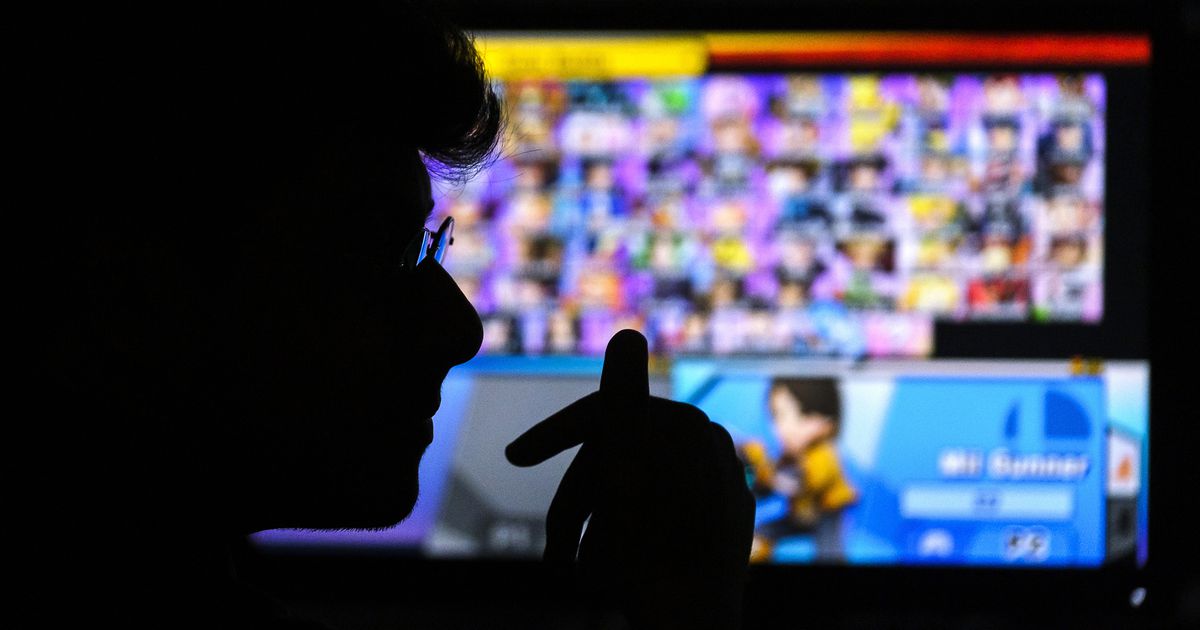The stakeholders behind two rising sports in Texas — esports and drone competitions — made their pitch to become UIL sanctioned activities at the association’s legislative council meeting on Sunday.
“As a community of educators, we believe that esports can be an accessible, inclusive and equitable path to college and career readiness for Texas students,” Danielle Johnson, executive director of the Texas Scholastic Esports Foundation, said at the Sheraton Austin in Georgetown during the meeting’s public hearing session.
According to PlayVS — a NFHS-partnered high school esports organization — 16 state athletic associations across the country sanction esports, including TAPPS in Texas. And according to Johnson, over 700 public high schools in Texas offer an esports program, and 40 colleges and universities in the state do as well. North Texas is also home to OpTic Gaming, which fields one of the world’s most popular professional Call of Duty teams.
The UIL first heard a proposal for sanctioned esports in 2019, and the proposal was once again monitored in 2021. UIL deputy director Jamey Harrison said, in 2019, that the inclusion of esports as a sanctioned sports was “probably a point of when, rather than if”.
According to a February report from The Dallas Morning News on the growth of esports at the high school level, Burleson ISD had 250 students interested in competing in esports, while Dallas ISD had 661 students compete in a January esports tournament. Michaela Frank, an esports teacher and coach at Frisco Panther Creek, cited a Pew Research Center study that found that 97% of teens ages 12-17 play video games.
“If there is a space for kids to belong to, they like school more, they attend more and they do better in school,” Frank said. “I see that in my own students.
“Esports is growing every year, and not getting into esports, we would be left behind.”
Johnson argued Sunday that a nod from the UIL could help lift the sport to a new height.
“Many school leaders and parents do not consider esports or competitive video games to be a valid extracurricular activity,” Johnson said. “And the students are the ones left behind. Only an acknowledgment from the UIL can bring the legitimacy that esports needs for those administrators and parents.”
Johnson proposed a pilot program for the 2023-24 school year, and that the UIL hosts an undisputed esports state championship in the spring. As it stands now, the Texas Scholastic Esports Foundations hosts non-profit tournaments, though other high school esports competitions and tournaments at the high school level are hosted by and ran by third-party associations, often for-profit according to Johnson. She worries that the current format could create inequities and and expose students to “exploitation from special interest groups.”
“Like UIL, we believe that schools make the rules,” Johnson said. “If we delay this pilot program any longer, we won’t have that option.”
Johnson’s proposal was referred to the policy standing committee, which met Sunday.
Proposal for sanctioned drone racing put forth
Jessica Dunegan, a STEM facilitator at Somerset High, offered a proposal Sunday that the UIL adopt drone racing as a sanctioned activity. And like those who backed esports, Dunegan said that drone racing would offer a competition-based opportunity for students who otherwise wouldn’t compete in athletics.
Dunegan told The Houston Chronicle in September that she’d garnered interest from roughly 150 schools.
“Facilitating growth of drone participation statewide will open avenues for all types of schools,” Dunegan said Sunday, and added that the activity would appeal to students with interest in photography, military, agriculture, physics, robotics and STEM. “Drones offers a huge opportunity that most have not considered.”
Dunegan said the cost of implementing drone racing would be “considerably less” than other robotics competitions, and that there is recommended funding for schools of need. Dan Mantz, the CEO of the Robotics Education & Competition Foundation (which hosts two different high school drone competitions), said Sunday that students can purchase open-source drones for $225.
The REC, Mantz said, started its drones program in 2019 and is now up to 500 involved schools nationwide. The REC hosted its first world championship in Dallas last May, and Mantz said that NASA and the Department of Defense STEM Council are among the government associations that support the program.
The Drone Racing League — a professional association for the sport — was founded in 2015. Pilots man a drone through a first person view, and traverse three-dimensional courses at up to 90 miles per hour. The College Drone Racing Association competes at a club level, and is made up of 28 colleges and universities, including UTSA and UT-Dallas.
“Drones are a part of our ecosystem here in Texas,” Mantz said. “They inspect oil rigs, agriculture, smoke stacks, everything. Drones is an opportunity for the UIL to get another STEM and workforce program at a pretty low cost.”
Dunegan believes a statewide drone program could be established “as soon as next year” if approved.
“This will give teachers more than just a textbook and standards, but a practical purpose to practice the skills being taught in a competitive environment,” Dunegan said.
***
Find more high school sports coverage from The Dallas Morning News here.
Sign up for our FREE HS newsletter
